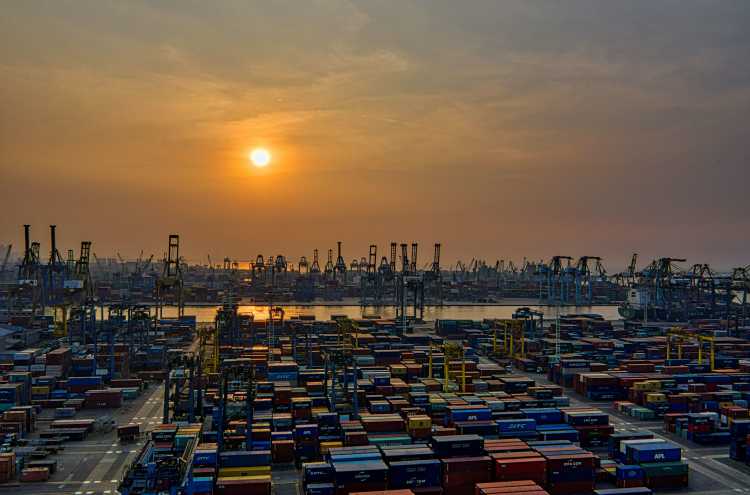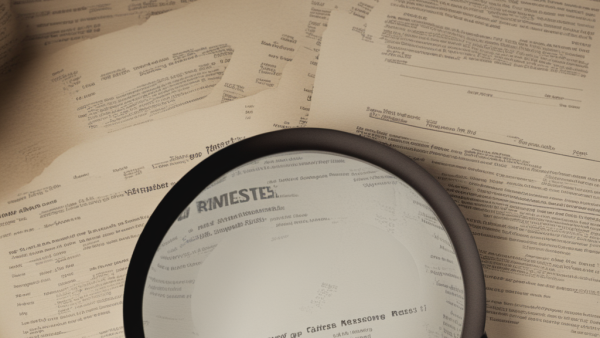
by Sam Franklin | June 01, 2022 | 13 min read
Getting customs clearance - The UK eCommerce merchant's guide
Get fundedLast updated: September 27, 2022
The number of businesses actively selling online has grown significantly over recent years. eCommerce is now a thriving part of the UK economy and commonplace in most of our lives. If you’re a merchant who sells online, you will need to understand international shipments. In this article, we look at the important area of customs clearance for UK eCommerce merchants – necessary whenever goods cross the border.
Table of contents
- What is customs clearance?
- What documentation do I need for UK customs clearance?
- How much are customs charges, and how do I pay them?
- Customs clearance by location
- Customs clearance by company
- Customs clearance FAQ
What is customs clearance?
Customs clearance is the act of moving goods through customs so they can enter the importing country. When you complete an eCommerce transaction, your international shipment must first clear customs before it can be transported to your waiting customer. It's compulsory for any goods entering or leaving a country, and so an important area for any business that sells internationally.
In the UK, the authority responsible for customs clearance is called Her Majesty’s Revenue & Customs. The UK customs clearance process means that the authorities can monitor exactly which goods are both entering and exiting the UK and know that the correct duties and taxes are being paid. Every country imposes duties and taxes on imported goods and it’s a significant source of revenue that national governments can use to invest in economic and social schemes. So you can assume that goods and accompanying documentation will be thoroughly examined by a customs officer at some point.
The process requires the submission of various export and import documentation, as well as the payment of duties, VAT, and any additional costs such as storage and testing by a customs officer. Some of the key documents for customs clearance include a commercial invoice, packing slips, and shipping labels.
You can visit the official gov.uk website to get further information on customs clearance, the rules and regulations and details of your local office responsible for customs clearance.
What does a customs broker do?
It can be daunting for business owners who are new to importing or exporting goods – or indeed do so infrequently – to organise everything required for customs clearance. However, if you’re careful and methodical in your gathering of documentation and fully compliant with the authority's requirements, then things should go off without a hitch.
To relieve you of some of the worry and workload associated with clearing goods through customs, you might well consider using a customs broker (also known as customs agents).
Doing so means you get experts in the area to assist you and act as a handy conduit between, in the UK, for example, HMRC and yourself as the merchant importer or exporter. The customs broker will have the know-how and customs clearance expertise to make sure you pay the right duty and tax amount and apply for any reduction that your particular goods or situation might qualify for.
The fees charged by customs brokers are variable and can become quite expensive, seeing as they can potentially involve brokerage, storage, and late payments.
Do I need to use a customs broker?
If you decide to enlist the help of some external expertise for dealing with customs regulations and customs documentation for shipping internationally, then customs clearance should be straightforward.
Although customs brokers are not a legal requirement for customs clearance, using one may, in the long run, be beneficial to your business both in terms of time saved on resources and other costs. When mistakes are made in documentation, customs clearance takes longer by a few days or more. In addition, using a customs broker will free you up to concentrate on other parts of your business, such as improving your product or service and increasing your customers.
You can find a list of customs agents on gov.uk
How long does UK customs clearance take?
The customs process in the UK will vary depending on the shipment. Where certain goods require additional documentation or a physical inspection by a customs officer to ensure that the declaration is consistent with the shipment, you can expect the process to take longer, maybe up to a few days.
To avoid any delays in the customs clearance process that might affect thor business, many merchants opt to use customs brokers because of their understanding of how things should be done.
Relatively speaking, UK customs are not as strict as, say, their Chinese equivalents, so the customs clearance needed should be delivered quickly when no problems arise.
What documentation do I need for UK customs clearance?
The type of documentation that you need varies by country. In general, you may need to provide:
Export documentation – purchase order, commercial invoice, packing list, air waybill or bill of lading, and a certification of origin.
Import documentation – purchase order, supplier sales invoice, air waybill or bill of lading, packing list, and a certification of origin.
These documents should include all the necessary information, but if anything is absent, such as a commodity code, you will also need to add them.
What other documents may I need?
Depending on the commodity code, you may need further documentation that you should be aware of before committing to export or import any goods. This could include health certificates for foods or plants.
Certain products also need an import or export licence. This helps governments limit the number of goods that can enter or leave a country in any set period. These licences are distributed by different government departments based on the particular goods in question.
In addition, you will need to add all other documentation required by the buyer or the terms of a letter of credit.
The Trade Tariff lookup service will help you find the relevant commodity codes and duty and VAT rates for your goods.
How much are customs charges, and how do I pay them?
In this section, we take a look at duties and taxes related to the customs clearance process and some of the situations that might help you reduce your overall costs.
How much are customs duties and taxes?
Duty – This tax is levied by a country on all imported goods, charged as a percentage of a product’s value, as determined by its commodity code and associated duty rating.
VAT – This is generally charged on the amount paid for the goods, the shipping costs, and the duty. The VAT rate differs by country but is 20% currently in the UK.
When do I not need to pay duties and taxes?
You can import certain goods into the UK without paying duty and VAT. Here are some examples of relevant conditions:
Bonded warehousing
Importing samples that have no commercial use past testing
Transit movements where the destination is not the UK
Inward processing relief, where the goods are due to be re-exported
Returned goods, where the goods were initially exported from the UK
While exports don’t usually require you to pay duties or taxes, a transit document may be required to prevent taxes from being demanded at the first country outside of the UK where your goods arrive, where this country is not the final destination.
Are there any additional customs charges?
Yes, there are other costs aside from duties and taxes:
Additional costs – such as costs relating to your goods being held and stored by customs. When importing, you may be charged for X-rays made to determine the safety and compliance of your goods with standards.
Anti-dumping – this is a duty that applies in the UK to some products to protect domestic manufacturing by deterring importing of the sample or similar product at a lower cost.
How do you pay customs charges?
You can pay customs directly, or you can pay your customs agent, and they will make the payment for customs clearance on your behalf. You can expect that most methods of payment that involve a customs broker will incur an administration and processing fee.
While many commercial importers and exporters will have a freight forwarder or customs broker to make the payments on their behalf, if you’re handling it yourself, then you can expect to receive an invoice once your goods have arrived in the country. You will then need to arrange payment before the goods can be released for onward transportation.
Can I avoid having to pay customs charges?
It’s illegal to use a lower commodity code to declare goods you’re importing. Equally, it’s illegal to make a false declaration of the value of goods to reduce duties or taxes.
Several forms of tax relief can remove or reduce customs duty. For instance, a reduced level of VAT for certain commodities. You should check to see if the goods qualify for a lower rate. You can find more detailed confirmation here, but as an example, you might qualify where the goods you’re importing are:
Covered by a preference agreement
Re-importing goods you’ve exported before
Importing goods to process or repair them
Importing goods temporarily
Educational and cultural goods
Medical or scientific goods
Printed and promotional goods
Goods for industrial or commercial research
Goods put to a specific use
Sea produce
Moving your business to the UK
Goods used for funerals and memorials
Getting goods by post
Goods for charity or supporting people with disabilities
Goods for personal use
Delaying Customs Duty and import VAT
Customs clearance by location
Here, let’s take a look at the general process you can expect to encounter around customs clearance in the UK and other major international trading countries.
UK customs clearance process
You need to get your business ready to import, decide if you will make the customs declaration or use a customs agent or broker, get the necessary commodity codes, work out the value of your goods, and find out if you need a licence or certificate for your type of goods and then move your goods through customs.
See more details on all the steps required
Chinese customs clearance procedure
China was the second-largest economy in the world in 2021. According to the Department for International Trade, the UK exported a total of £27 billion to China in 2021, an increase of 3% or £785 million compared to 2020. Before exporting to China, you may want to consult with the UK Department for International Trade for up-to-date information.
International shipments are controlled and inspected by China Inspection and Quarantine (CIQ). If your goods pass the CIQ inspection, they will then move on to customs before being released. So, if you ship to a customer in China, you should be aware that local customs procedures are strict and that certain products such as cosmetics and food are highly regulated.
Customs clearance in India
India also has strict customs rules that can lead to customs clearance delays if not followed properly. Again being aware of the regulations and ensuring your documentation is in order is the best way to ensure a smooth customs clearance process.
For India, you will need to provide the receiver’s know-your-customer or KYC documentation in advance.
When goods enter India, it goes through either express or formal customs clearance depending on if the goods are low value (e.g. gifts, samples, or documents) or high value (bulk or regulated goods).
Customs clearance by company
Completed customs clearance process Amazon
When selling through Amazon you are ultimately responsible for checking that goods can lawfully be imported into the country.
As a buyer, you can get an estimate of import fees for the customs clearance process on products shipped by Amazon when you go to checkout.
For merchants, you can use Fulfilment by Amazon (FBA) international solutions for picking, packing, and shipping, or handle it yourself. Either way, Amazon will not be responsible for any customs duties and taxes associated with inventory. Any shipments arriving at an Amazon fulfilment centre with customs duty charges due will be returned to the sender.
Check out our blog posts on calculating FBA revenue and how to calculate FBA fees
Aliexpress customs clearance
If you are using the Alibaba-owned online marketplace, Aliexpress, you should be aware of all the general best practices already mentioned in this article and the customs process in China.
Also, be aware that Christmas time can be extremely busy for a marketplace as big as Aliexpress, as can Black Friday and Cyber Monday. The most important holiday in the Chinese calendar is New Year (21 January to 20 February). Most of the country comes to a standstill during this period.
DHL customs clearance
As one of the big three global logistics companies and specialists in international shipping, you can expect DHL to be an ideal partner as a customs broker for your business. On their website, they state the use of; ‘the latest customs clearance technologies and EDI capabilities, to ensure consistent and compliant trade activities’.
Get more information about DHL’s services
FedEx customs clearance
Like the other major logistical companies, if you use FedEx as your customs broker, you can be confident that they are handling the process in the most efficient and cost-effective manner. As always, you can choose to use your own customs broker instead.
Find out more about how FedEx handles the customs clearance process
UPS customs clearance
The UPS customs brokerage service promises ‘shipments cleared faster, easier, and with less hassle’. They, too, have a delivery network that is truly global and optimised for speed and efficiency.
Have a look at UPS’ brokerage services
Customs clearance FAQ
What does customs clearance mean?
Customs clearance is the act of moving goods through customs and across borders so they can enter another country.
When do you need customs clearance?
Customs clearance is required whenever goods are crossing a border or when they are due to leave a ‘customs authorised facility’. The places of entry or exit include any airport, seaport, or by road through the tunnel.
A customs-authorised facility is a place where suspended goods that have been approved to travel are stored.
What value must you declare to UK customs?
UK customs clearance requires the ‘border value’ of the goods to be declared. The border value can be defined as the cost of the goods, freight, and insurance at the time of crossing the border.
What is a commodity code?
All products have a commodity code that’s (in most cases) recognisable worldwide. The commodity code determines the level of duties and VAT to be paid and whether you need additional licences for your shipment.
How long does customs clearance take?
Typically, customs clearance is almost instant and takes under 24 hours to complete. If your paperwork is lacking, this could extend the process by several days.
Can I organise the customs clearance myself?
Yes, but most businesses use a customs broker. Handling it yourself requires you to pre-pay all import duties and taxes.
Can I move goods without paying duty and VAT?
Goods can be imported into the UK without paying duty and VAT under specific customs procedures, including but not limited to:
Bonded warehousing
Importing samples that have no commercial use
Transit movements where the destination is not the UK
Inward processing relief, where the goods are due to be re-exported
Returned goods, for goods initially exported from the UK
These processes may require additional proof and authorisation for use.
Can customs duties be claimed back?
Import duty can’t be claimed back, but VAT-registered businesses can claim the VAT back on their imports. VAT accounts for 20% of the entire process cost for UK importers.
Written by

Sam founded his first startup back in 2010 and has since been building startups in the Content Marketing, SEO, eCommerce and SaaS verticals. Sam is a generalist with deep knowledge of lead generation and scaling acquisition and sales.


